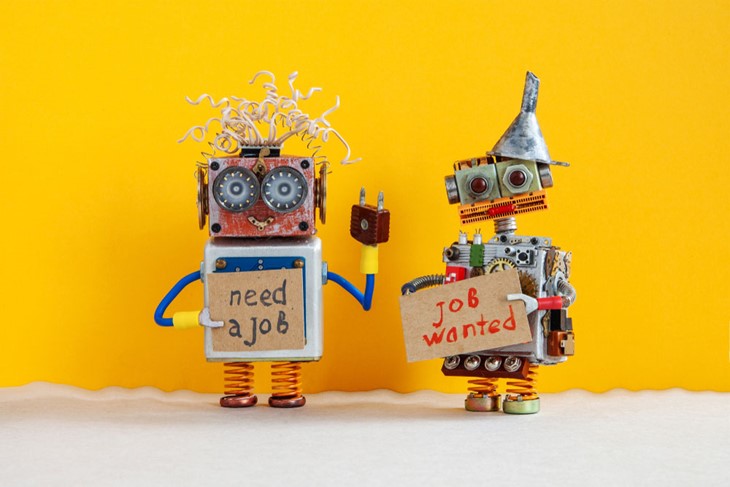- Get a quote
- Jobs
-
Employers
- Employers
-
Hire Staff
-
Our Sectors
-
Testimonials
-
About
- About
-
Our Team
-
Our Company
- Contact
- Blog
- EN | PL
Smart steps to robot-proof your future career

Posted by
HR GO Recruitment
on
Are robots coming for your job? For many employees, a question that once seemed so far-fetched is slowly growing more plausible.
The answer is that it could depend which sector you work in. Research in 2017 pointed to the fact that by 2020, a massive 85% of customer interactions would be handled without a human being - with artificial intelligence (AI) and automation doing the heavy lifting.
Meanwhile in the manufacturing sector, it’s estimated that 20 million jobs around the world could be lost by 2030. Research also points to the fact that the more repetitive the job, the bigger the risk of it being wiped out in the future.
Businesses around the world are embracing automation because it can increase productivity and profit, but it’s worth remembering that not every role can be automated. Here are some tips to help you prepare for the shifting workplace, protecting you and your career with every development in artificial intelligence (AI) and automation.
Make the most of being human
There are still things that AI and robotic haven’t mastered yet, and they involve soft skills that only humans possess. Unlike machines, we have emotional intelligence, leadership abilities, creativity, curiosity and are able to collaborate.
Even if you currently work in a sector that’s likely to rely more on automation and AI in years to come, think about how to make the most of those ‘people’ qualities and how you can showcase them in your current or future role.
Practice adaptability
As we’ve written about at HR GO recently, employers already see adaptability as an essential work skill (it ranked highly in a list of the most in-demand soft skills companies needed in 2019).
Showing you can adapt to changing work priorities is crucial for employers who are facing unprecedented upheavals because of technological development – and it’s set to feature even more heavily in the future.
What does adaptability look like in the workplace? It’s about being flexible in the way you work and think, like having the initiative to change gears quickly, being able to leave your comfort zone, facing setbacks with a positive attitude and seeking out change.
Look for self development
Are you clear on the skillsets you need to achieve your career goals? And, most importantly, what these skillsets could look like in the future?
Smart businesses are retraining their sights on how they can help their staff adapt further down the road, helping to give workers the skills that robots can’t replace.
Take matters into your hands if your employer is yet to do this. Is there a mentoring programme available? Can you be a mentor as well as a mentee? How about courses that can equip you for future roles? Keeping your professional development at the top of your to-do list will pay off in decades to come.
Tomorrow’s work
By focusing on what humans can do, and what machines can’t, you can strengthen your case as these technologies take hold.
Smart businesses rely on human skills, so it’s about making the most of what makes us special - getting ahead of the game and staying relevant in an automated world. That way, even if future colleagues do end looking more machine than man (or woman), at least you have the right skillsets to thrive.
